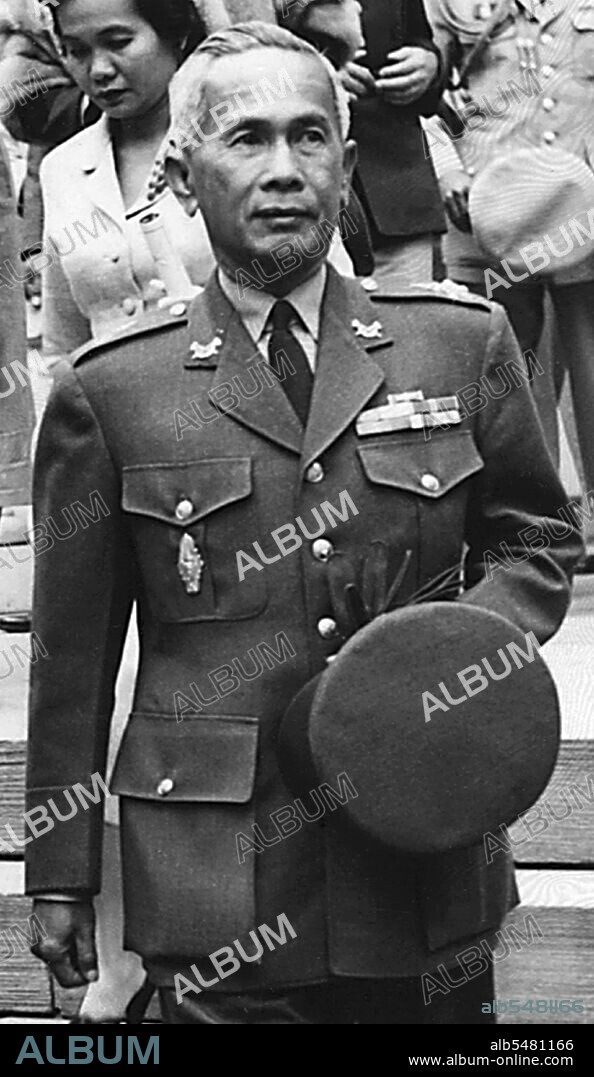alb5481166
Thailand: Field Marshal Plaek Pibulsongkram (July 14,1897-June 11,1964), generally known as Phibun Songkhram, Prime Minister and military dictator from 1938 to 1944 and 1948 to 1957

|
Zu einem anderen Lightbox hinzufügen |
|
Zu einem anderen Lightbox hinzufügen |



Haben Sie bereits ein Konto? Anmelden
Sie haben kein Konto? Registrieren
Dieses Bild kaufen.
Nutzung auswählen:

Titel:
Thailand: Field Marshal Plaek Pibulsongkram (July 14,1897-June 11,1964), generally known as Phibun Songkhram, Prime Minister and military dictator from 1938 to 1944 and 1948 to 1957
Untertitel:
Siehe automatische Übersetzung
Pibulsongkram was one of the leaders of the military branch of the People's Party that staged a coup d'état and overthrew Thailand's absolute monarchy in 1932. In 1938, Pibulsonggram replaced Phraya Phahol as Prime Minister. Pibulsonggram began to increase the pace of modernisation in Thailand. By manipulating the mass media, Pibulsonggram supported fascism and nationalism. In 1939, Pibulsonggram changed the country's name from Siam to Thailand. In 1941, in the midst of World War II, he decreed January 1 the official start of the new year instead of the traditional April 13. When the Japanese invaded Thailand on December 8, 1941, Pibulsonggram was reluctantly forced to order a general ceasefire after just one day of resistance. On December 12, Pibulsongkram signed a military alliance with Japan. The following month, on January 25, 1942, Pibulsongkram declared war on the allied powers. At the war's end, Pibulsonggram was put on trial at Allied insistence. However, he was acquitted amidst intense public pressure. Public opinion was favourable to Pibulsonggram as he was thought to have done his best to protect Thai interests. Phibun was involved in another coup in 1947, and resumed his pre-war position as effective military dictator until a 1957 coup, led by Sarit Dhanaraj, forced him into exile in Japan where he died in 1964.
Bildnachweis:
Album / Pictures From History/Universal Images Group
Freigaben (Releases):
Bildgröße:
3200 x 5514 px | 50.5 MB
Druckgröße:
27.1 x 46.7 cm | 10.7 x 18.4 in (300 dpi)
Schlüsselwörter:
ARMEE: SOLDAT • ASIEN • ASIEN, KONTINENT • DIKTATOR • GESCHICHTE • KONTINENT, ASIEN • MILITAER • MILITAR • MILITÄR • MILITÄRISCH • NATIONALIST • PREMIERMINISTER • SOLD • SOLDAT • SOLDATEN • THAI • THAILAND • VOLKSARMIST • ZEITGESCHICHTE
 Pinterest
Pinterest Twitter
Twitter Facebook
Facebook Link kopieren
Link kopieren Email
Email
